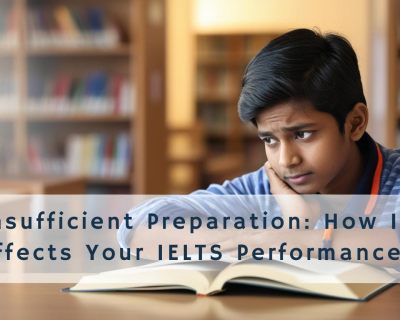Are you preparing for the IELTS Writing test and feeling a lack of confidence? Don’t worry; you’re not alone. Many test-takers experience anxiety and self-doubt when it comes to their writing skills.
However, building confidence is essential to perform well in the exam. In this article, we will provide you with practical tips on how to boost your confidence for the IELTS Writing test and improve your chances of success.
Understand the IELTS Writing Test Format and Scoring
Before we delve into confidence-building tips, it’s crucial to have a clear understanding of the IELTS Writing test format and scoring criteria. Knowing what to expect and how your performance will be evaluated can alleviate anxiety and give you a sense of direction. You can learn more about the format and scoring here.
1. Improve Your Essay Writing Skills
One of the primary reasons for lacking confidence in the IELTS Writing test is insufficient essay writing skills. Enhancing your writing abilities will not only boost your confidence but also improve your overall performance. There are several ways to improve your essay writing skills:
- Read and Analyze Sample Essays: Familiarize yourself with sample IELTS essays to understand the structure, style, and language used in high-scoring responses. Analyze the arguments, supporting evidence, and organization of the essays. You can find valuable resources on improving essay writing skills here.
- Practice Writing Regularly: Writing regularly is key to improving your skills. Set aside dedicated time for writing practice and choose topics related to the IELTS test. Focus on developing clear arguments, organizing your thoughts, and using appropriate vocabulary and grammar.
2. Expand Your Vocabulary
A rich vocabulary is crucial for expressing your ideas effectively and showcasing your language proficiency. Enhancing your vocabulary will not only improve your writing but also boost your confidence in using a wide range of words. Here’s how you can expand your vocabulary:
- Read Extensively: Engage in regular reading, including books, newspapers, and online articles. Pay attention to new words and phrases, and make a note of them. Try to understand their meanings and usage in different contexts. This practice will help you develop a broader vocabulary range. Resources on expanding vocabulary can provide you with valuable tips and exercises.
- Learn Vocabulary in Context: Instead of memorizing word lists, focus on learning vocabulary in context. Understand how words are used in sentences and practice using them in your own writing. This approach will make the vocabulary more meaningful and memorable.
3. Master Grammar Essentials
Grammar plays a vital role in conveying your ideas accurately. Improving your grammar skills will not only enhance your writing but also give you the confidence to express yourself with clarity. Here’s how you can master grammar essentials:
- Review Grammar Rules: Take the time to review essential grammar rules, such as verb tenses, subject-verb agreement, sentence structure, and punctuation. Resources on grammar essentials can provide you with a refresher on important grammar concepts.
- Practice Grammar Exercises: Engage in grammar exercises specifically designed for IELTS preparation. These exercises will help you identify and correct common grammatical errors. Focus on areas where you struggle the most and practice until you feel confident.
4. Manage Your Time Effectively
Time management is crucial for success in the IELTS Writing test. Feeling rushed and unable to complete your responses can significantly impact your confidence. Here are some time management strategies to consider:
- Familiarize Yourself with the Test Format: Understand the time allocation for each task and the number of words required. This knowledge will help you plan your writing accordingly.
- Practice Writing Under Time Constraints: Simulate exam-like conditions by practicing writing tasks within the given time limits. This practice will help you become comfortable with writing efficiently and managing your time effectively.
- Create an Outline: Before starting your essay, spend a few minutes creating a brief outline of your main ideas and supporting points. This outline will serve as a roadmap, ensuring that you stay on track and save time during the writing process.
5. Seek Feedback and Review Your Writing
Receiving feedback on your writing is invaluable for improvement and building confidence. Here’s how you can seek feedback and review your writing effectively:
- Find a Writing Partner or Tutor: Connect with a writing partner or seek guidance from a tutor who can provide constructive feedback on your writing. They can identify areas for improvement, suggest alternative sentence structures, and help you refine your ideas.
- Review and Revise Your Writing: Dedicate time to reviewing and revising your writing. Look for errors in grammar, vocabulary, coherence, and cohesion. Make necessary revisions to enhance clarity and effectiveness. Resources on reviewing and revising writing can provide you with tips and techniques.
How Kandor Helps Boost Your Confidence for IELTS Writing
At Kandor, we understand that confidence is key to performing well on the IELTS Writing Test. Our platform offers tailored support to help you build this confidence, from real-time feedback to AI-powered mock tests. With detailed insights into your writing, we pinpoint areas of improvement and provide practical tips for mastering the writing tasks. Whether you’re struggling with structure, grammar, or time management, Kandor’s resources, including live classes and video lessons, ensure that you’re fully prepared to tackle the IELTS Writing Test with confidence.
Conclusion
Building confidence for the IELTS Writing test is essential to showcase your true abilities. By following these practical tips, practicing consistently, and utilizing available resources, you can improve your writing skills, expand your vocabulary, master grammar essentials, manage your time effectively, and seek feedback to review and enhance your writing.
Remember, building confidence takes time and effort, so be patient and persistent. With practice and determination, you can approach the IELTS Writing test with confidence and achieve the score you desire.




















